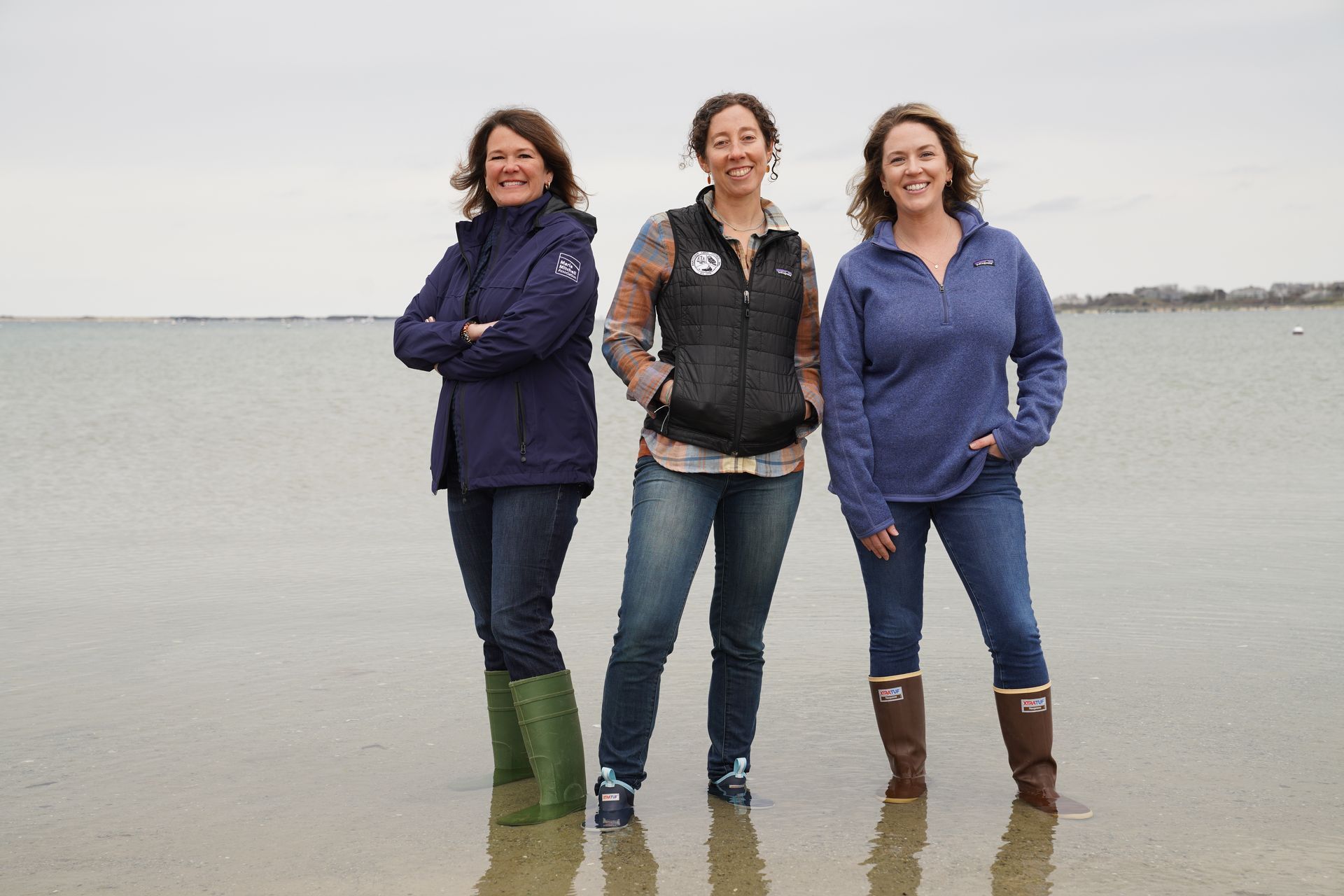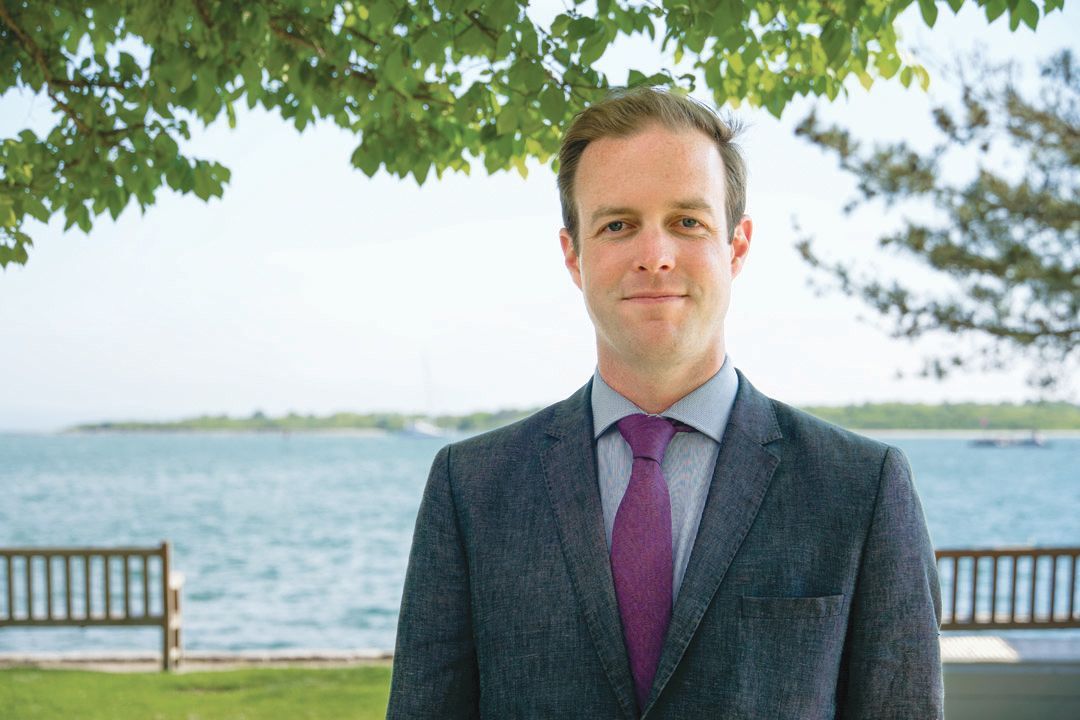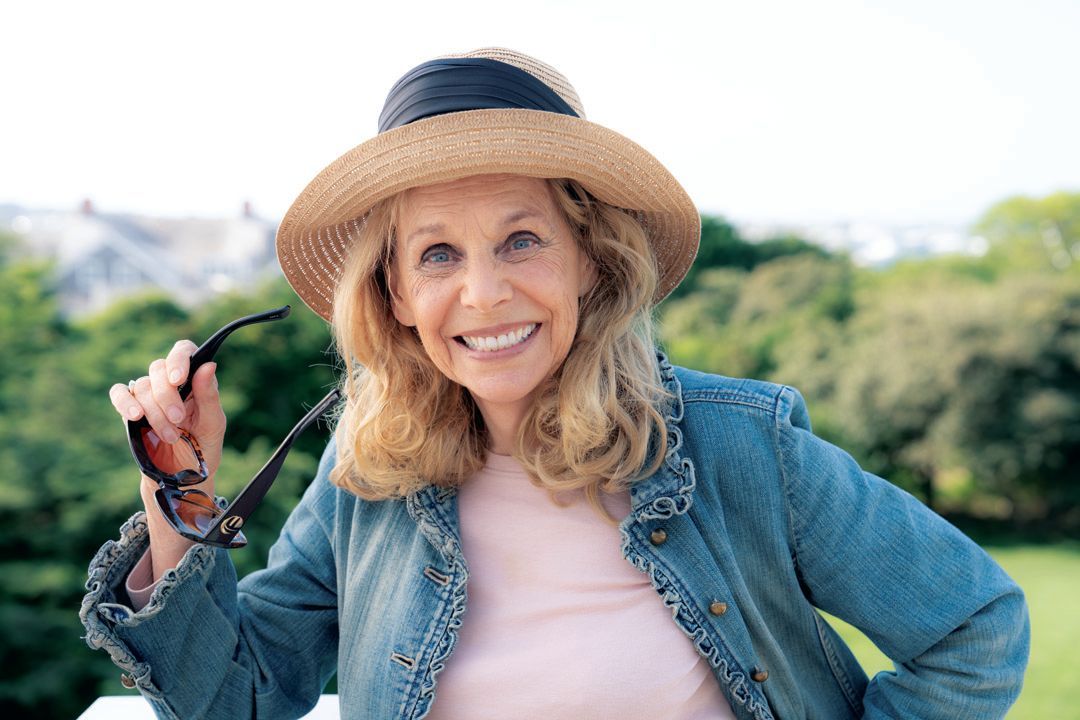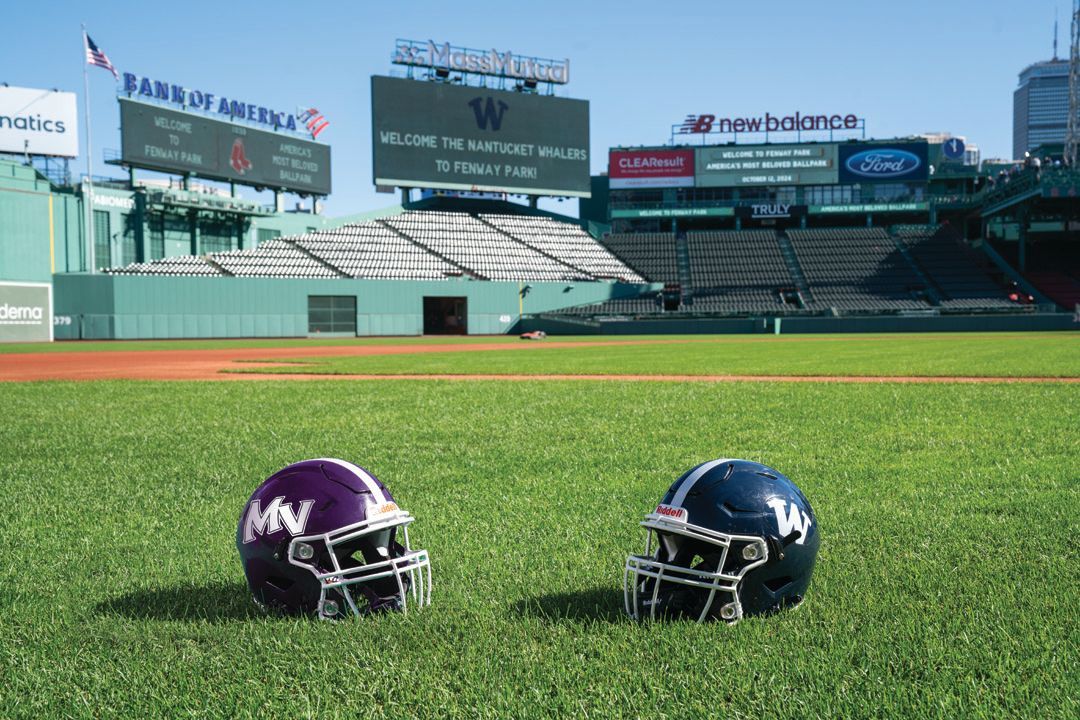WATERSHED MOMENT
How the Clean Water Coalition is giving our harbor a fighting chance.
As recently as the early 1980s, Nantucket’s annual commercial scallop yield consistently reached 50,000 bushels, at one point climbing to about 120,000. Today, the annual scallop yield always falls below 10,000 bushels, and sometimes well below 5,000. It’s not because scallops have been over-fished. It’s because the waters off Nantucket have become too polluted to support the marine habitat in which they thrive.
Scallop harvesting is only one casualty of the island’s ever-murkier waters. Pollutants also threaten Nantucket’s drinking water and compromise the safety of ponds and streams that sometimes teem with poisonous algal blooms. With the health of Nantucket’s water nearing a tipping point, the Maria Mitchell Association, the Nantucket Land Council and the Nantucket Shellfish Association have joined forces to form the Nantucket Clean Water Coalition. The new group wants to help people on island understand that much about the cleanliness of the water is under their direct, daily control.
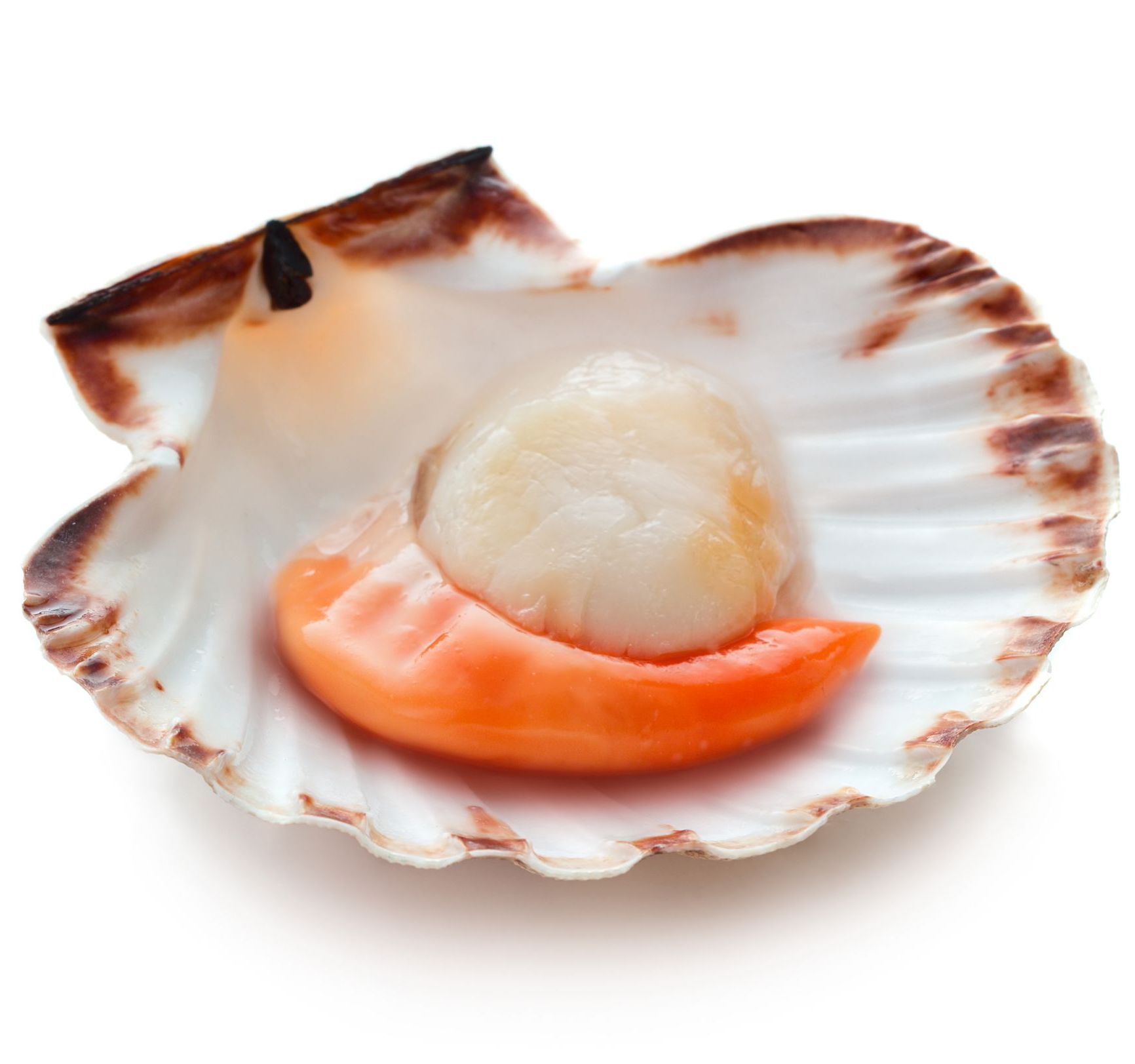
"No matter where you live on Nantucket,” says Emily Molden, executive director of the Nantucket Land Council, “you are in a watershed, meaning water is always flowing downhill from your property—into ponds, harbors, the ocean. So if any kind of pollutant on your land runs over the surface or leaches down into the groundwater, it gets transported and breaks out into one of those water bodies.” That includes the soap and wax you use to clean your car in your driveway or the paint thinner you might pour down a storm drain—one of those little sewer grates off the curb. It’s a particularly fraught issue on Nantucket, Molden says, because of the island’s sandy soils. Pollutants run through the ground at a faster rate than in most of New England, with the soil providing less filtration. That’s part of the reason that “the way in which we manage our land has huge implications for the health of our waters,” she says.
The Clean Water Coalition, which is collaborating with town departments including the Health Department and the Natural Resources Department, has identified three main actions people can take in their daily lives that would have a huge impact on restoring the cleanliness of Nantucket’s waters.
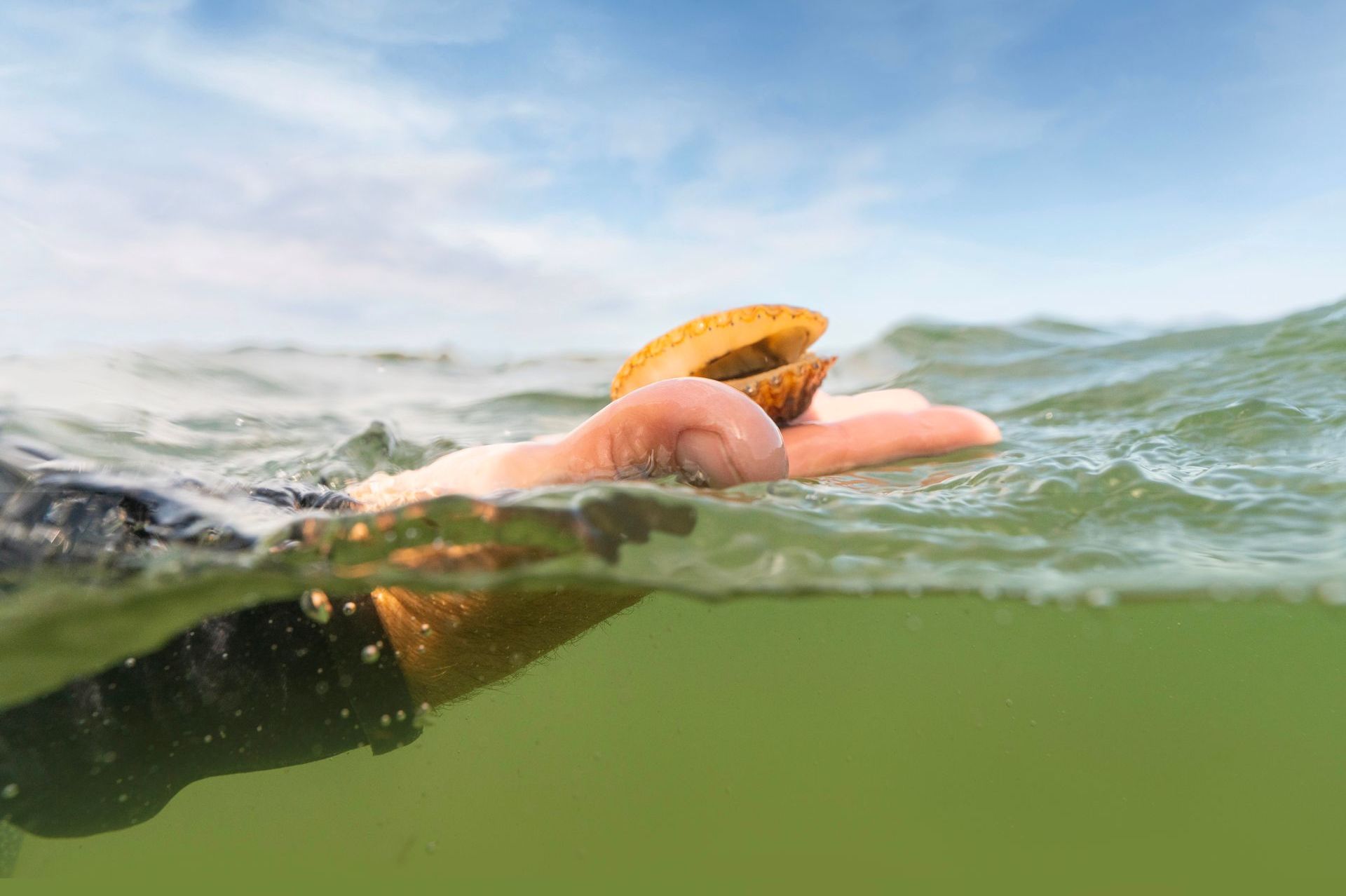
Fertilizer management. “We’re experiencing an over-application of fertilizer,” says Samantha Denette, executive director of the Nantucket Shellfish Association. “If grass uses what it needs, the rest is going to run off.” That runoff contains the fertilizing nutrients nitrogen and phosphorus. Excess phosphorus ends up in fresh water like ponds and paves the way for toxic algae. Nitrogen leads to algae growth in the harbor. The algae end up clouding the water column, making it difficult for the growth of eelgrass—the habitat in which scallops thrive.
“If you go snorkeling off Tuckernuck or Muskeget,” Denette says, “you will get this throwback experience to what eelgrass used to look like—beautiful green blades. Off Nantucket, it now looks fuzzy. In some areas it’s completely wiped out. In others, it’s either dying or a lot smaller and weaker than it used to be.”
How to have a nice green, fertilized lawn without overdoing it? Nantucket has its own fertilizer regulations through the Board of Health. Landscapers have to have a license to apply it, and that license has to be renewed every year to ensure that they are familiar with the rules. For instance, they’re not supposed to fertilize right before a heavy rainfall because the fertilizer will run off the grass and down into the water. Fertilizer is also not supposed to be applied between October 15 and April 15. Sometimes people put on fertilizer in the fall because they think it will protect their grass over the winter, Molden says, but plants can’t really use fertilizer if the soil is too cold. “It’s a complete waste of money,” and it will run into the water when it rains or when snow melts. It can also make its way to the underground aquifers that supply the island’s drinking water. “People should ask their landscapers if they have a license to apply fertilizer,” Molden says. “Another thing to ask: Could you use less?”
Denette suggests introducing native plants to gardens and yards. They require less fertilizer than lawns. “There’s some really beautiful stuff out there,” she says. Molden adds that when developing or redeveloping a lot, leaving mature native vegetation in place as much as possible would be a huge benefit. “When a lot is being developed,” she says, “one of the worst things that can be done is to scrape the land of its existing native vegetation. Ripping out plants releases additional phosphorus and nitrogen into the groundwater, and establishing new plantings typically requires more fertilizer.”
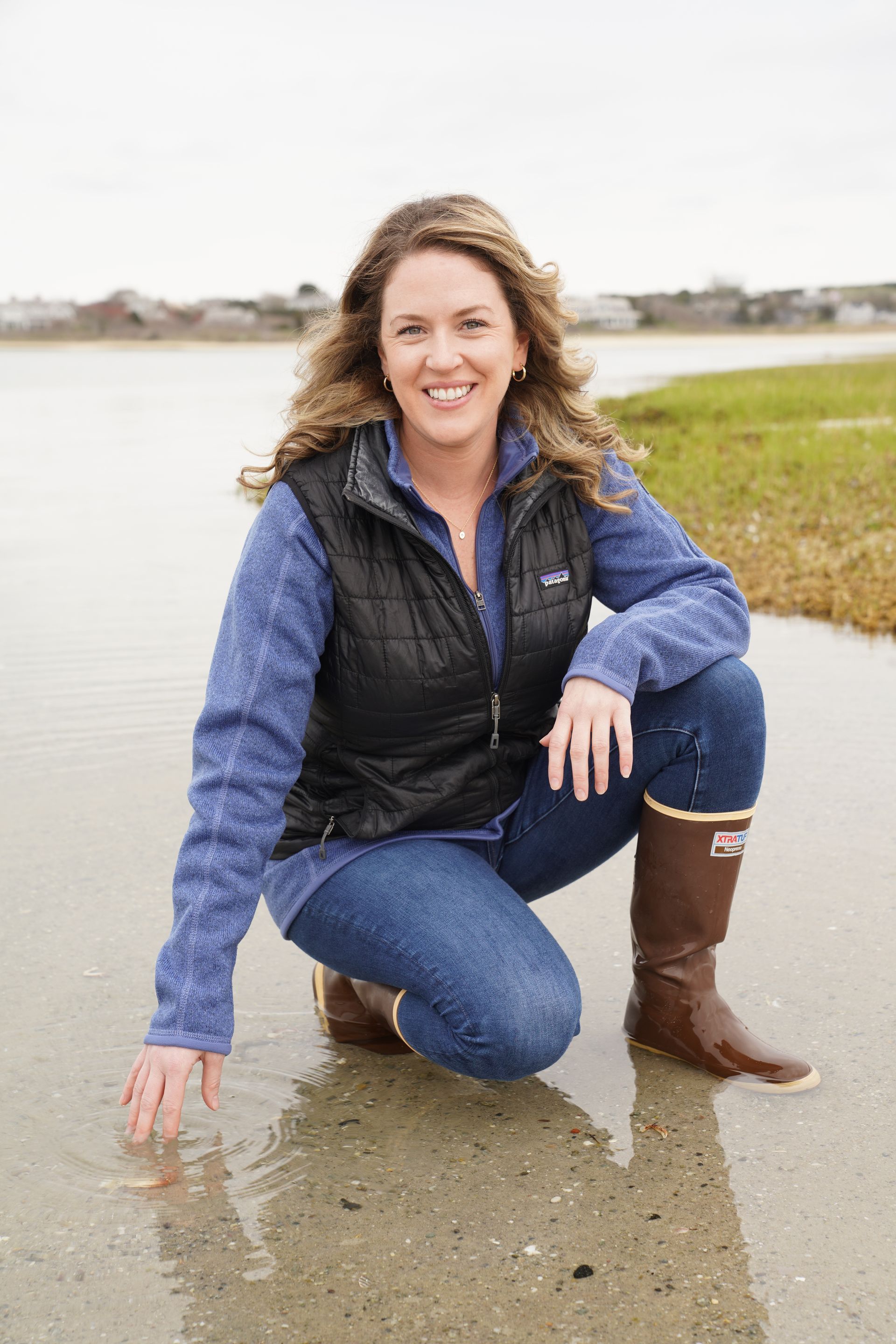
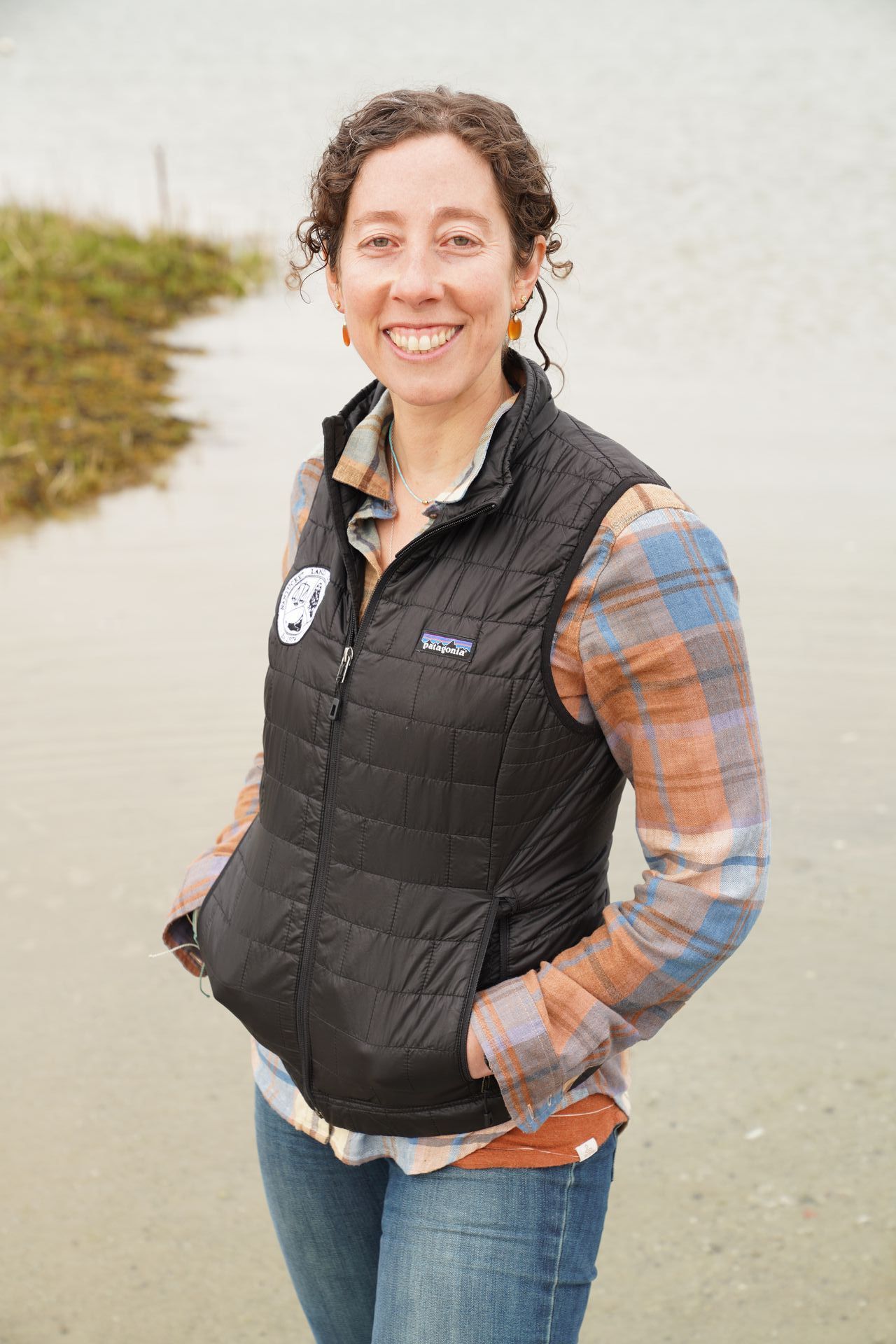
Wastewater management. Ideally, more of Nantucket would be on a sewer system that consistently and adequately filters nitrogen, phosphorus and other contaminants from the water we flush and send down tub and sink drains. As it is, we have a range of treatment systems ranging from decades-old cesspools and pits to newer, innovative systems. But even with the best systems, Molden says, “typically at least some forms of nitrogen and phosphorus end up in a leaching field and make it into the ground from there. Regulations talk about how far away a septic system can be from a water body. But rain is always going to slowly carry those things into the groundwater and from there, out to ponds and the harbor.”
The best thing people can do, she says, is have their septic system pumped every one to two years. As a system fills up, more nitrogen and phosphorus are going to bypass it and end up in the leaching field. When you pump your system, not only are you leaving room for more waste products, you are also sending effluent into a truck that delivers it to a sewage treatment plant rather than letting it flow underground until it lands in water that would otherwise remain clean.
Stormwater management. When it rains, some of the water will percolate into the soil, and some will run right over the ground’s surface and end up in storm drains. Either way, as it travels along, it picks up nitrogen, phosphorus and anything else that makes it way to the street. If it hits soil, it potentially contaminates the underground drinking water supply. If it flows into a storm drain, it makes its way into Nantucket’s outfall pipes that discharge directly into the harbor.
“Right now, we don’t have a stormwater management plan,” says Joanna Roche, executive director of the Maria Mitchell Association. That makes it all the more important not only to refrain from dumping things into storm drains but also from engaging in activities that could send pollutants into storm drains passively. That would include applying an excess of fertilizer on your lawn, letting oil or gas leak from your lawn mower, or haphazardly applying a cleaner to a rug that you took outside to wash.
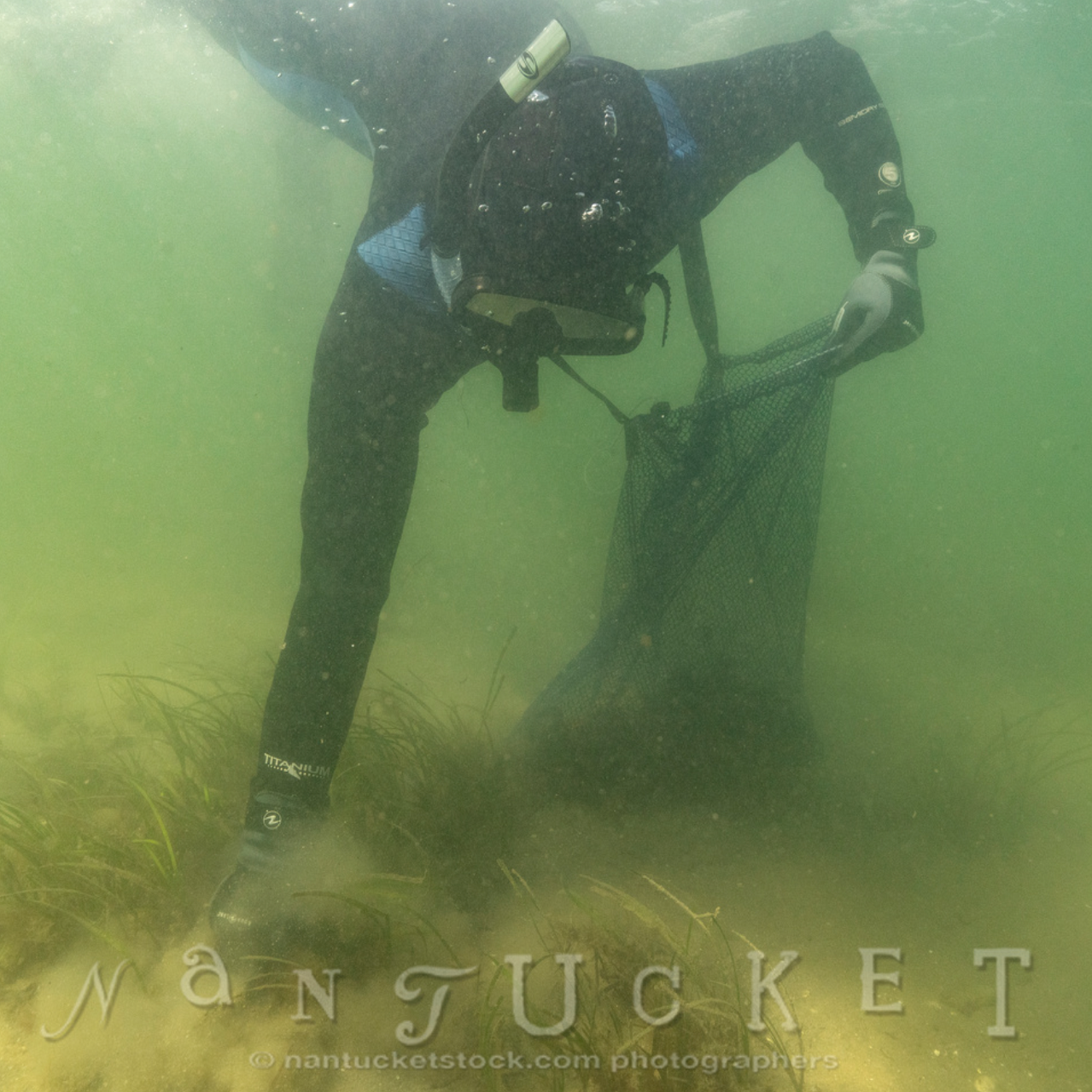
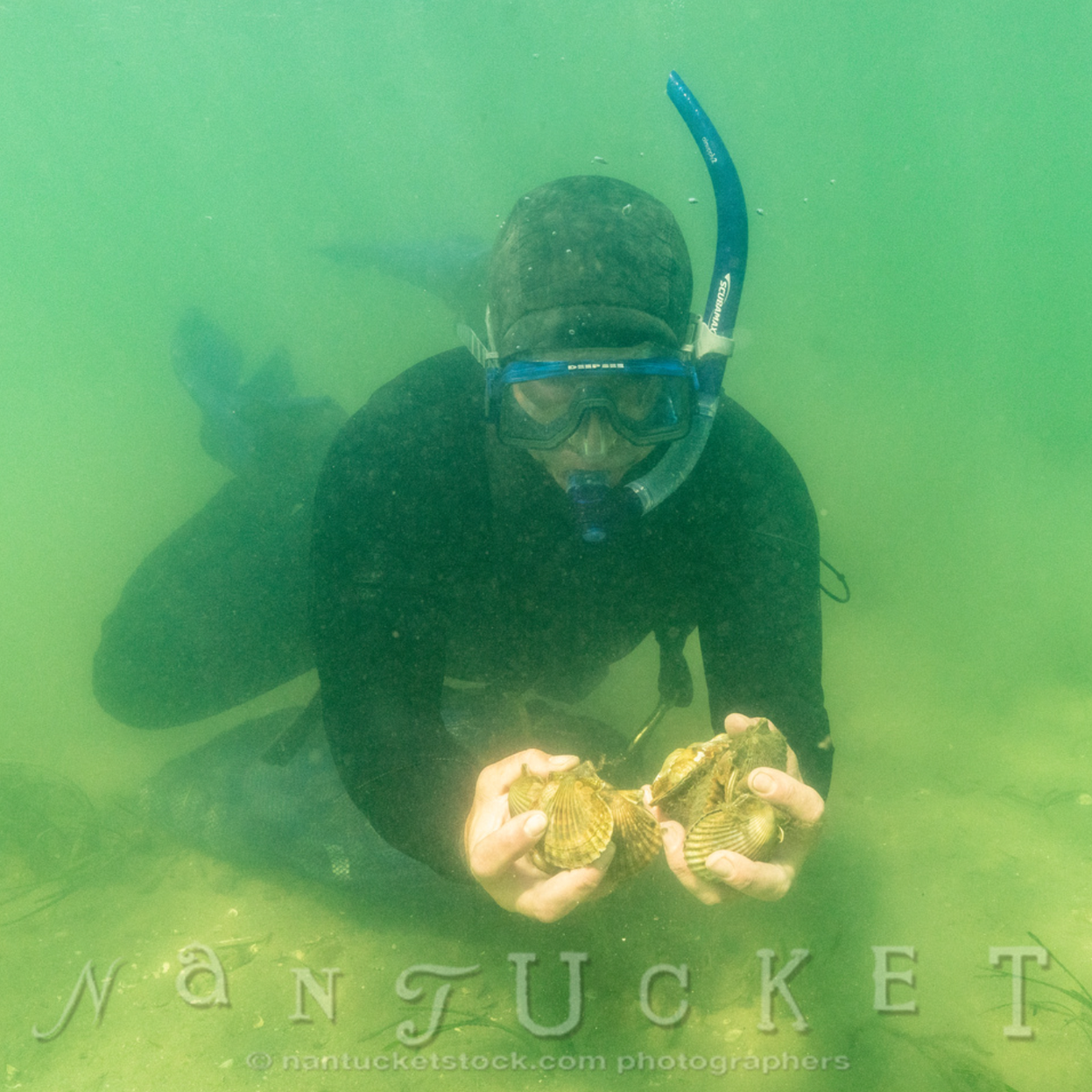
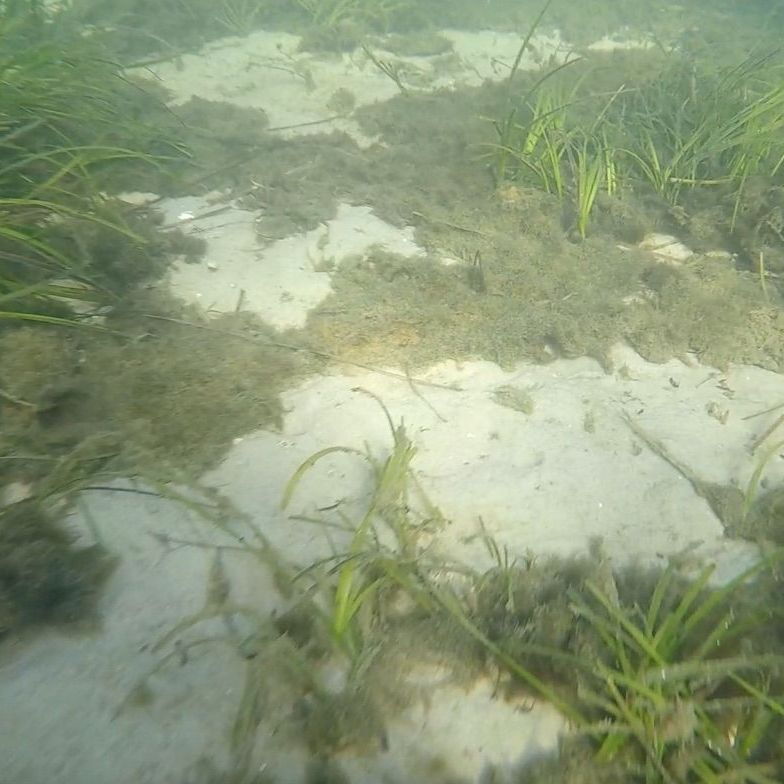
The Clean Water Coalition has been in discussions with various town departments so that restoring the island’s waters becomes a shared agenda that involves all concerned parties. Natural Resources Director Jeff Carlson is one of those who is happy to participate. “The Clean Water Coalition has helped us broaden the network of people getting connected to information,” he says. “Meeting with hem to talk about all things ‘water quality’ keeps everyone in the loop a little bit better and really helps us to work collaboratively to get the word out.”
As an example, Carlson says, “We may put something out about fertilizer management in early April. The seasonal people—three or four times the year-round population—may not see it. But if it goes through a nonprofit, it gets out so many times and in so many different ways. One of those ways is going to connect with the end user.”
And each end user makes an impact. “People think, ‘Me doing one thing every day is pointless,’” says the Nantucket Shellfish Association’s Denette. “But with the summer population, we have 80,000 people. If each one did just one change in the positive, think about just how much progress we could make. It doesn’t mean changing everything about your life. Maybe this year it’s a couple of native plantings; next, it’s reducing your green lawn footprint a little bit.”
The stakes are exorbitantly high because of Nantucket’s iconic geological status. The island has one of the last natural bay scallop fisheries on the East Coast, for instance. “We may still have time to sustain it,” the Land Council’s Molden says. “Many communities have basically lost it all.” “You don’t choose to go to an island if you don’t like water,” adds Denette. “Our harbors, the waters around us, it’s who we are. I want people to know they can make a difference. We are all stewards of Nantucket’s future.”
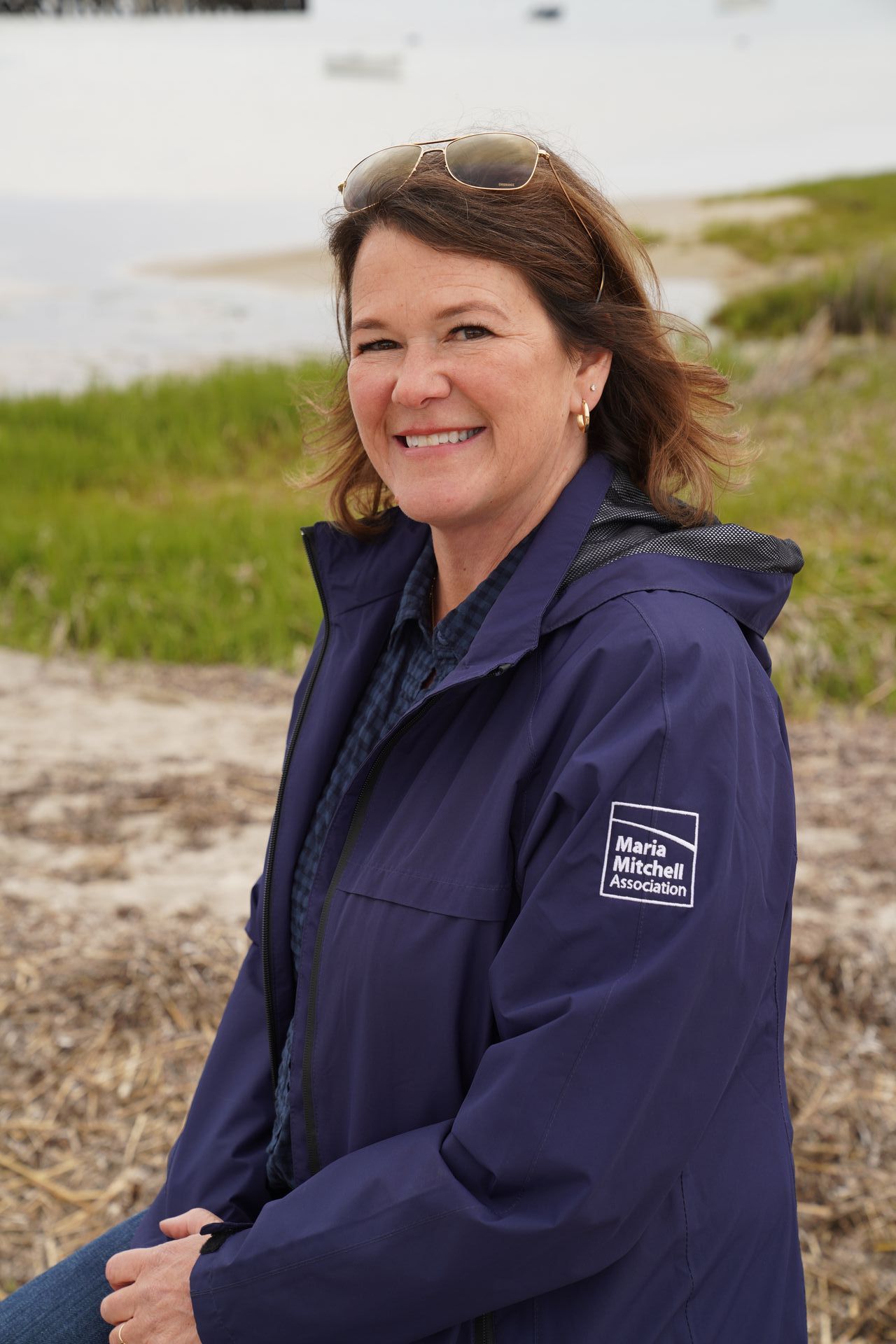
The Clean Water Coalition includes ACKlimate Nantucket, Great Harbor Yacht Club Foundation, Linda Loring Nature Foundation, Maria Mitchell Association, Nantucket Marine Mammal Alliance, Mass Audubon, Nantucket Chamber of Commerce, Nantucket Civic League, Nantucket Conservation Foundation, Nantucket Land Bank, Nantucket Land Council, Nantucket Pond Coalition, Nantucket Shellfish Association, Sustainable Nantucket and UMass Boston Nantucket Field Station.
Latest Stories


